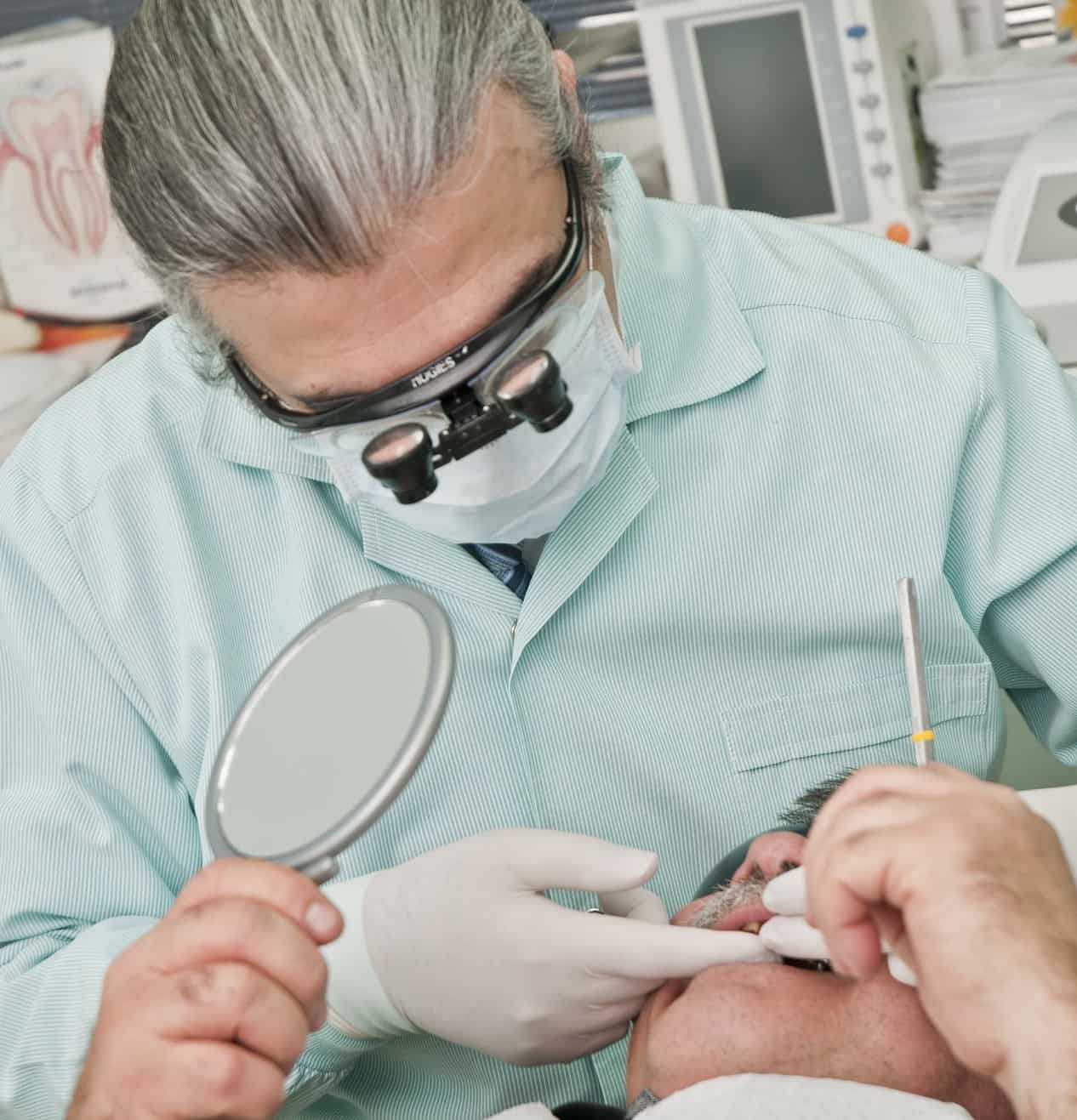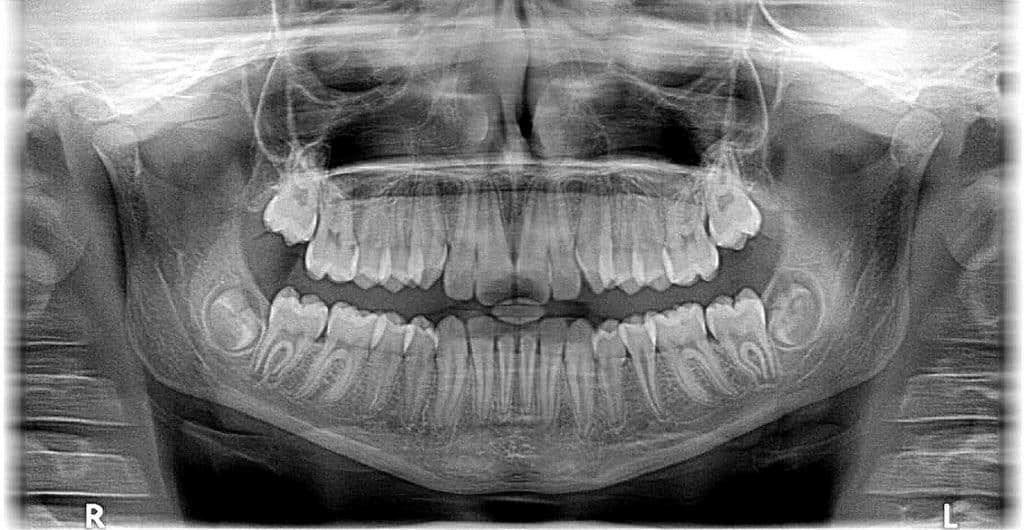Best Affordable Dental Insurance

The Senior List is compensated when you click on the provider links listed on this page. This compensation does not impact our ratings or reviews. Click here to learn more about our editorial review process and click here to learn more about how we are compensated.
As we age, taking care of oral health is an integral part of general wellbeing. The state of our teeth and gums affects other parts of our body, and this is why it’s essential to see a dentist regularly. As well as keeping your mouth healthy, your dentist can also spot issues that might point to problems elsewhere in the body. For example, bleeding gums can be a sign of diabetes, so if your dentist notices this is an issue, they can advise you what to do next, including seeing your primary care physician.
Odds are, if you plan to see a dentist, then you’ll want some kind of insurance. However, in this country, dental insurance can be complicated to navigate. This guide will help you with the basics of health insurance, including plan types and affordable providers.
What Is Dental Insurance?
Dental insurance is a form of health insurance that helps with mouth and teeth care costs. Dental insurance provides preventive care and routine examinations that can prevent costly emergency procedures in the future. If the worst does occur and you crack a tooth or need a significant procedure, dental insurance can help cover those costs.
Dental plans can help people effectively budget for any issues related to oral health, such as denture impressions, root canal procedures, cavity fillings, dental crown devices, or replacing breaking or cracking a tooth.
Dental care contributes to a positive and healthy lifestyle. 59 percent of older adults lead a more satisfying life in general if their teeth and mouth are in good condition. With that said, 23 percent of adults 65 and over have not been to a dentist in five years. Those who neglect proper dental care may risk gum and tooth diseases that lead to costly procedures that regular check-ups could have avoided.

How Does Dental Insurance work?
Dental insurance plans can be purchased individually, or they may be bundled with other insurance such as health and vision.
Like most types of insurance, dental insurance usually includes deductibles, copays, and maximums:
- A deductible is the amount you will need to pay out-of-pocket before insurance starts to pay for dental costs. Once the deductible is exceeded, you will have to pay coinsurance or a percentage of the service or procedure cost.
- A copay is the set amount of each treatment or visits you need to cover.
- Maximums are the most insurance will pay for dental costs in a given period. Once this amount is met, the individual is responsible for paying any remaining costs.
FYI: Dental insurance plans vary as to how deductibles, coinsurance, copays, and maximums work and what the amounts are, so double check before purchasing a plan.
Some insurers will also cover you if you use a dentist they are not directly contracted with (typically called an out-of-network provider). However, the amount you can claim is likely to be much lower than if you use an in-network dentist, and not every insurer covers out-of-network treatments.
If you already have a dentist you prefer, you can ask them if they take any of the dental insurance plans you are considering. If they do, research those insurers first to see if any of them suit you – if they do, you can sign up for a plan with them and stick with your preferred dentist. If not, you may need to find another primary care provider.
Tip: In-network dental care has less expensive co-pays and handles the paperwork, so you do not have to submit claims yourself.
Once you find a dentist, you are responsible for paying a copay or reduced fee when attending the treatment office. In some cases, you may need to file an insurance claim with your provider to recoup the cost after the fact though sometimes the office will handle that.
Types of Dental Insurance
There are two main categories of dental insurance plans: DHMOs and PPOs. Each plan has benefits and drawbacks.
Dental Health Maintenance Organization (DHMO)
Most of these plans require you to choose a primary care dentist and receive referrals from them for specialists. DHMO's typically have lower premiums and no deductibles. However, the network size for providers is smaller, so your preferred dentist may not be covered.
DHMO Pros
- Lower premiums
- No deductibles
- Minimal co-payments
DHMO Cons
- Limited choices for coverage
- Referral often required for specialist care
- Does not cover any out-of-network providers
Preferred Provider Organizations (PPO)
PPO plans are more common and provide care from a network of dentists contracted with insurance companies for set fees and co-pays. These plans typically have a larger number of dentists you can choose from, but they may have higher premiums than a DHMO plan.
PPO Pros
- Large network of providers
- Primary care referrals are not needed for specialist care
- Some plans pay out-of-network providers for care
PPO Cons
- Higher premiums
- Annual maximums (the amount insurance will pay) for care
- Co-payments can be expensive depending on the plan and service
Tip: Some DHMO providers have open-access networks, so you do not need to choose a primary care provider or get referrals for specialist care.
Can Choosing a DHMO Save You Money?
A DHMO plan typically costs less than a PPO plan. Monthly premiums are lower, but deductibles may be higher for emergency care or specialized procedures. DHMO plans prioritize preventive care, so if you go to the dentist regularly and are on a budget, a DHMO plan may be for you.
A PPO plan lets you choose your dentist from among a network of providers. The premiums are a bit higher, but the freedom of choice is much more significant as a result. Most plans fall into this category; however, a DHMO is better than no coverage if money is tight.
Keep in mind that DHMO plans may not be available for individual purchase. Some providers only offer these plans through employers.
What To Know Before Signing Up for Dental Insurance
Before you commit to a dental insurance plan, make sure you know the following information:
- Is the plan is a PPO or HMO?
- What are dentists covered under the plan?
- How much will you pay for each routine office visit?
- Do you need the plan to cover any other family members?
- How much will special procedures or emergency visits cost?
- Which specific dental care will you need (dentures, for example), and will the plan cover this?
- Always check the small print before signing up for any plan, especially when it comes to copays, deductibles, coverage limits, and other out-of-pocket costs.
Affordable Dental Insurance Plans
1. Aetna Dental
What We Like Most:
- Extensive network with more than 372,000 providers to choose from
- Easy-to-use quote tool and provider look-up portal
- No-cost preventive care
- PPO plans
Overview
Aetna has been in operation for over one hundred years and offers over 13 million members dental coverage. The company boasts over 370,000 in-network providers. Most of Aetna’s plans provide office visits and routine procedures (like X-rays, annual exams, and fluoride treatments) at no out-of-pocket costs. Aetna does not offer dental HMO plans for individual purchase; however, they are available through an employer. Available plans vary based on your location. Aetna provides a handy guide that goes over coverage options, exceptions, and rules for individual and family plans.
While our Aetna review covers their products in more detail, here is the necessary information for Aetna’s most popular individual plans for purchase:
Aetna Dental Insurance Plans
| Plan | Features |
|---|---|
| Aetna Dental® Direct Preferred PPO |
|
| Aetna Dental® Direct Core PPO |
|
Pros
- Broad network coverage
- Easy-to-navigate benefits and provider network
- Routine, preventive care is fully covered
- High coverage of basic procedures
Cons
- High out-of-network costs
- Longer waiting periods
- Unavailable in Massachusetts
2. Cigna Dental

What We Like Most:
- Three plan options to choose from
- Deductibles and copays waived for preventive care
- 24/7 customer service and simple claims management
- Low-premium plans available
Overview
Cigna is a major health and dental insurance provider that has been around for a long time. Over 15 million people have Cigna dental insurance. Cigna has over 90,000 dentists in their network. If you’re looking for a dentist, Cigna also provides a tool to help you compare care providers based on their professional history and affordability. There are no age restrictions for their dental plans. Some procedures may have waiting periods before you can get them covered.
Cigna offers the following PPO plans for individual purchase:
Cigna Dental Insurance Options
| Plan | Features |
|---|---|
| Cigna Dental 1500 |
|
| Cigna Dental 1000 |
|
Pros
- Plans start at less than $20 per month
- Copays and deductibles waived on preventive care
- Simple, online claims process and 24/7 customer support
- Brighter Score ratings help choose practitioners
- Coverage for major procedures
Cons
- $1000 and $1,500 maximums set for the 1000 and 1500 plans
- Added restrictions and differing coverage in Maryland and New York
3. Solstice

What We Like Most:
- Dental discount plan
- No referrals needed to see a specialist
- Includes a FREE discount prescription drug plan
- Two FREE preventative care appointments per year
Overview
Solstice, based in Florida, provides highly customizable plans so you only need to purchase coverage for what you need. Solstice offers prepaid, DHMO, indemnity, and PPO plans along with discount dental programs. They are currently offering plans in six states (AZ, FL, GA, NJ, NY, TN). Their website lists exhaustive dental services and associated co-pays so you check how much everything costs before choosing a plan. Solstice does not offer out of network coverage. However, they do provide a free discount prescription drug plan.
Solstice offers the following dental plans:
Solstice Dental Plans
| Plan | Features |
|---|---|
| 800 Plan |
|
| Plus Plan One |
|
Tip: Dental insurance varies state by state, so make sure you compare plans available in your area.
Pros
- PPO and HMO dental insurance options
- Preventative exam every 6 months
- Includes free prescription drug discount card
- Includes spouse and dependent children
Cons
- Only available in Florida
- $20 processing fee for new members
Recap
Dental insurance does not have to be costly or complicated. The important thing is to figure out which kind of care you will need and choose a plan that fits those needs. While dental emergencies cannot be planned for, your costs for dentures, routine preventive care, orthodontia, and jaw disorders can be considered when choosing dental insurance that fits your budget.

